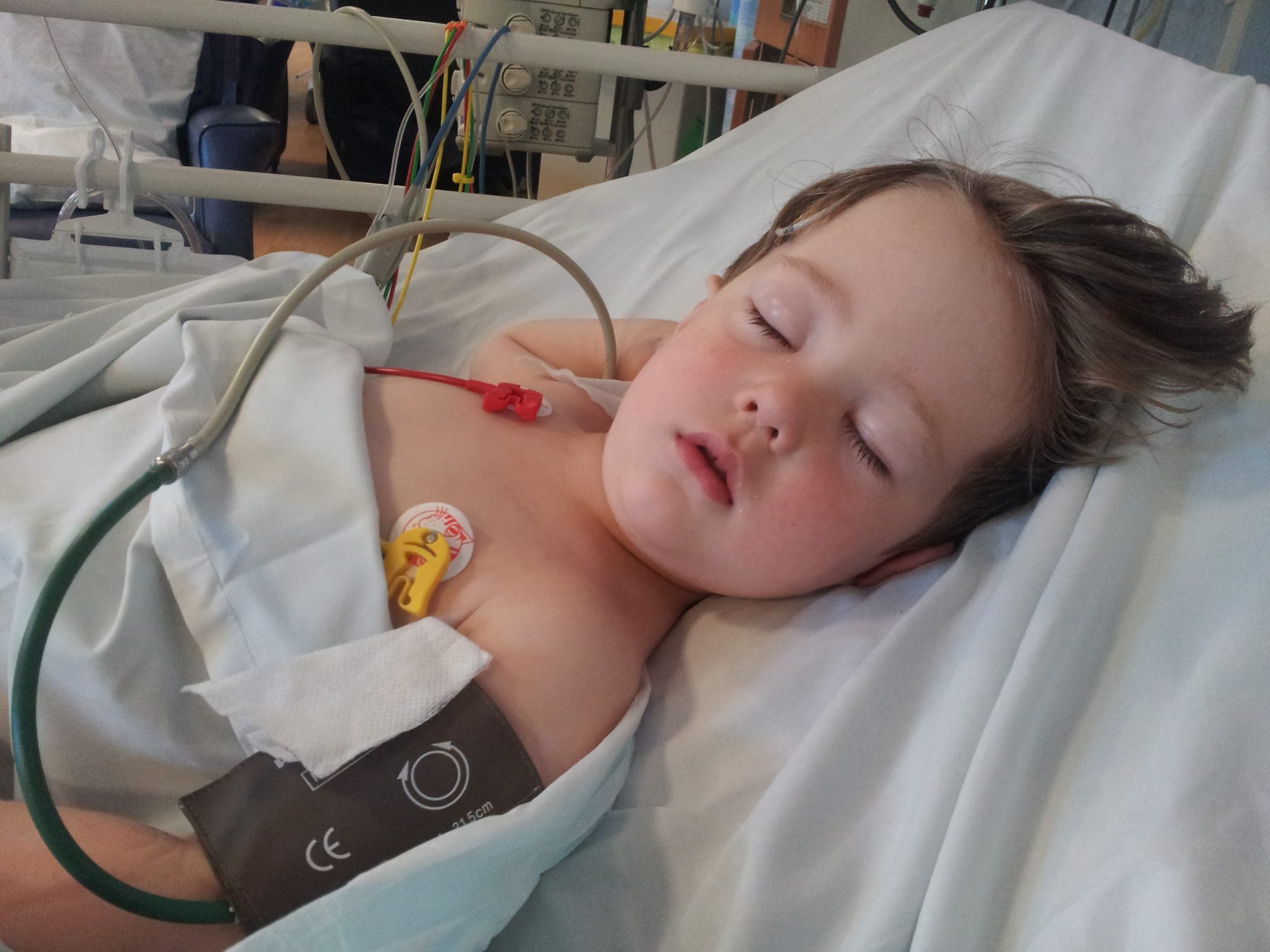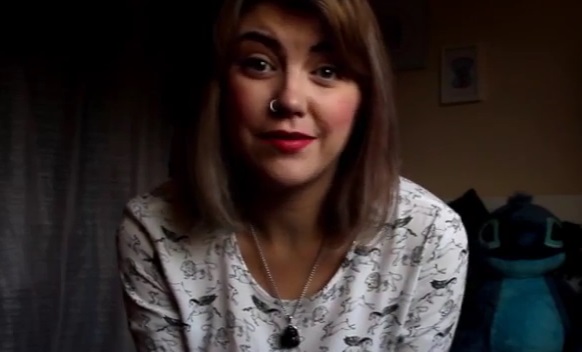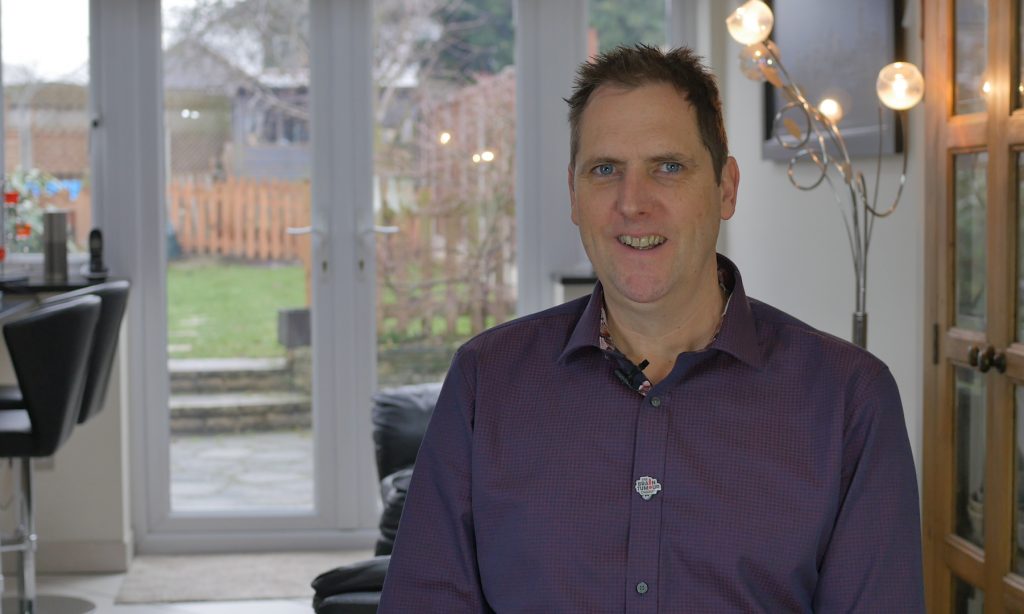Rosie's story
Seeing that HeadSmart card saved my son’s life
When her son Daniel started showing uncharacteristic behaviour, Rosie Bell remembered seeing a HeadSmart symptoms card that a friend had shared. That started a chain of events that ended up in emergency, life-saving surgery to remove a tumour the size of an adult’s fist.
If you’d met Daniel Bell in 2014, you’d have seen a very normal three-year-old boy. “He was a really chilled-out, easygoing lad, who was always full of beans,” explains his mum Rosie, from Ormskirk in Lancashire.
So when she began noticing some strange changes in his personality, alarm bells rang.
Daniel started having tantrums out of the blue. Proper meltdowns about really insignificant things.
Friends said that it was just the usual terrible twos, but something didn’t feel right about it. He’d be inconsolable and that just wasn’t Daniel.
Then he started wetting the bed for the first time and seemed to be poorly all the time – he’d catch every bug going. It just didn’t add up.
The symptoms became worse
We went on holiday to Northumberland and that was when I remembered lots of things getting even worse.
Daniel wanted to sleep all the time. He was constantly tired and lethargic and we ended up pushing him round in his buggy the whole time, because he didn’t want to walk, It was so out of character.
Then the real warning sign was when he began waking up in the morning and being sick almost immediately. We knew it wasn’t a virus, because he had no temperature or other symptoms. This continued even once we came home from holiday.
It was like a lightbulb moment
That was when HeadSmart came to the rescue.
A friend’s son had been diagnosed with a brain tumour about a year before and I suddenly remembered the HeadSmart card that she’d shared on Facebook with all the symptoms.
One of the symptoms was being sick all the time, and it was like a lightbulb going off in my brain. It all fitted together.
I took Daniel to the doctor, who listened carefully to my concerns. The doctor didn’t fob me off, but also noticed Daniel was rubbing his eyes a lot.
The GP prescribed Daniel with anti-histamines for possible hayfever, but also told me to come back in a week if things didn’t improve.
The following week, I returned and a different doctor spotted a new symptom – Daniel was holding his hands behind his head, no matter if he was sitting down or standing.
The doctor referred Daniel for an MRI, which would take about two days.
They bluelighted us to Alder Hey hospital
But I decided I couldn’t wait. The next morning at about 8.30, I took Daniel straight to A&E in Ormskirk. I explained all his symptoms, but I left out the part about waiting for an MRI referral, because I didn’t want to come across as a hysterical mum.
The medical staff confirmed what I’d suspected, though, and by 11 o’clock, he was in the CT scanner. As soon as they’d done the scan, they realised how severe everything was.
They put Daniel straight into an ambulance and immediately bluelighted us to Alder Hey Children’s Hospital, which was about 20 miles away. We arrived at 12.30 and Daniel was in surgery by 3pm. Everything happened so quickly.
The first life-saving procedure the surgical team carried out was to release the pressure on Daniel’s brain. That operation alone took three hours!

He had a tumour the size of an adult fist
The consultant, Mr Mallucci, came to see us and said they’d have to operate again on Daniel the next day. He said it couldn’t wait, because the tumour was still pressing on Daniel’s brain.
I was told Daniel had a pilocytic astrocytoma, one of the most common brain tumours diagnosed in the UK. Mr Mallucci said that although the tumour was large – about the size of an adult’s fist – it was a low-grade tumour and that he was confident he could remove it all.
The next day, Daniel’s tumour was removed during a 9-hour operation. We were so lucky he was at Alder Hey, the theatre has something called an intra-operative MRI scanner, so they were able to scan Daniel’s brain during surgery and they spotted a bit they’d missed.
This meant they removed the whole tumour in one operation, without needing to go back in.
Without that HeadSmart card, Daniel wouldn’t be with us
Daniel turned 8 recently, has recently started junior school and is just like any other boy his age. Apart from the scar, you’d never believe it had ever happened.
He’s now really into maths at school – I don’t know where that’s come from in the family!
But I also knows just how lucky we have been. After the operation, Mr Mallucci told me that if I hadn’t seen that HeadSmart card, Daniel would have most likely died in his sleep one night.
I’m now good friends with Katie – the woman who shared that card. She’s obviously so happy too. When she shared the HeadSmart campaign, she always hoped it would be worthwhile, so for her to know that it saved Daniel’s life is amazing.
I now do the same as Katie did back in 2014. I make sure all the nurseries and schools in Ormskirk have HeadSmart cards available. Someone told me the other day she’d seen a card stuck to the fridge in a friend’s kitchen, so I know they’re getting out there.
It’s something I’ve tried to get out there, but you really hope you never have to think about it.

Tell us your story
Tell us about your experiences with brain tumours

Nigel's story
After initially only sharing his news with close family and friends, Nigel then appeared on BBC News to share his story

Clare's story
Clare and her husband decided to donate their daughter Olivia's brain to research.
HeadSmart
10 children and teenagers are diagnosed with a brain tumour every week in the UK, that’s more than one a day. Diagnosis times of childhood brain tumours are longer in the UK than in many other countries.
The HeadSmart campaign aims to reduce brain tumour and brain cancer diagnosis times to four weeks or less.
To achieve this we are raising national awareness of the common signs and symptoms of brain tumours in children and teenagers by equipping parents, the public and healthcare professionals with the information they need.